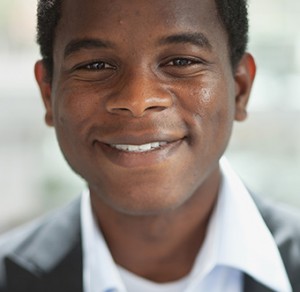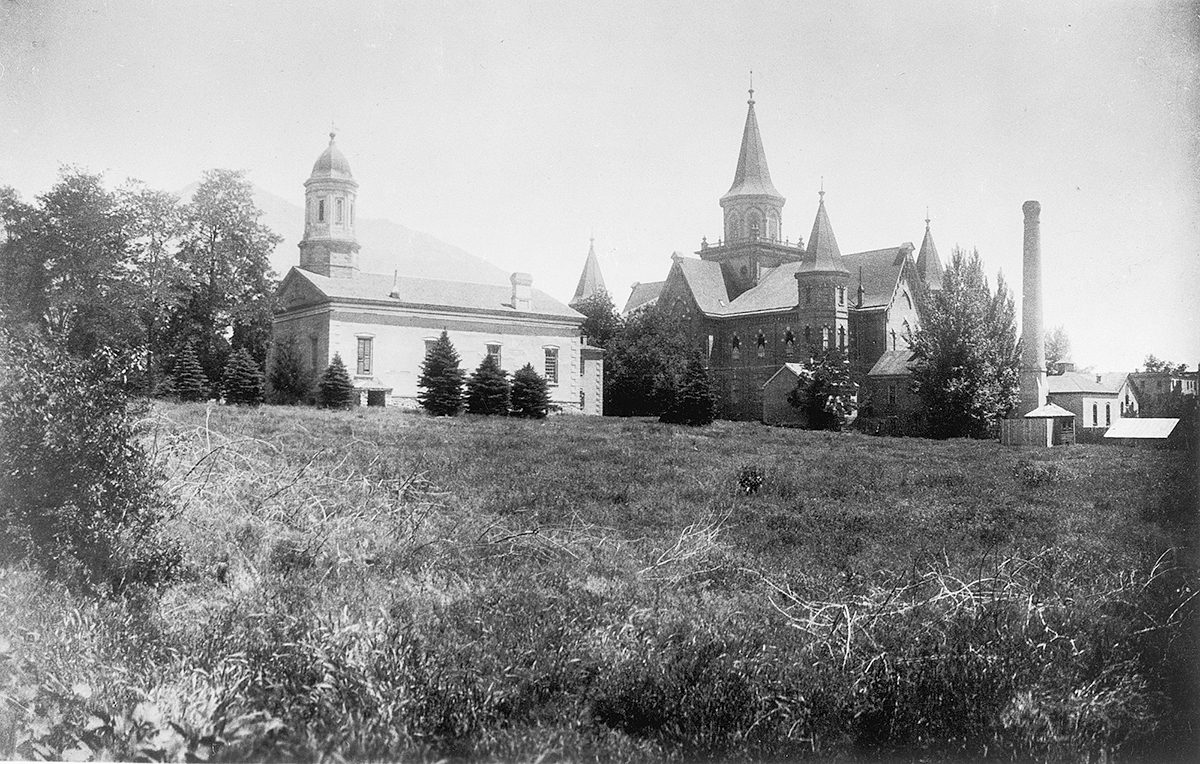A chemist turns to finance, hoping to benefit his homeland.
Wilfried E. Eyi’s (BS ’12) love of Gabon, and his mettle to fight its poverty, was forged in a downpour.
It was the type of rainstorm that makes the country 80 percent rainforest. As Eyi trudged on, he noticed a set of homes in a basin well below the roadside bank—homes, he says, that “would flood to the roof.” Eyi, 15 at the time, stopped in his tracks. “I sat there and looked on, just wondering where those people would be sleeping that weekend.” What’s more, he says, was that they’d endure it again the next year. “For me, having my home destroyed every rainy season would be a direct denial of my opportunity to progress.”
That was the night, Eyi says, that he “recognized the price”—the price he’d have to pay, through schooling and hard work, to be able to treat more than the immediate needs in Gabon. He wanted to find lasting solutions.
 He resolved to become a doctor and began a college exchange program in Texas. There he met the LDS missionaries. Eyi joined the Church and transferred to BYU as an 18-year-old just a few semesters shy of a chemistry degree.
He resolved to become a doctor and began a college exchange program in Texas. There he met the LDS missionaries. Eyi joined the Church and transferred to BYU as an 18-year-old just a few semesters shy of a chemistry degree.
Yet after serving his own mission, Eyi was unable to take his capstone biochem class right away, so he dabbled in econ and accounting. The newcomer to finance even entered himself in the Marriott School’s Private Equity Case Competition—and took second.
Like catalysts and reactions in chemistry, says Eyi, mergers and acquisitions formed new compounds that enticed him. “I realized that I loved the capital markets,”says Eyi. “I wanted to learn how to use the capital markets to open up accountable money”—money that could jumpstart markets in places like Gabon.
He gave up the medical track. Through BYU’s Ballard Center for Economic Self-Reliance, Eyi landed an internship in spring 2011 at the University Impact Fund (UIF), the country’s first student-run social venture capital firm. The Utah-based firm provides support to promising upstarts that use market-based solutions to improve lives.
For example, one of the UIF deals Eyi worked on focused on a fishery supply chain in Bali. Before UIF got involved, the fishermen made a few cents per fish and the catch went through two brokers—half of it spoiling before being exported. The new model buys fish directly from the fishermen, pays them three times more, and provides coolers to reduce spoilage.
Eyi had fallen in love again, this time with impact investing—and with Laura Lewis (BA ’10, MPA ’12), a fellow BYU student on the UIF team. The two were married in June.
UIF director Lewis Hower says Eyi’s desire to drive change in his home country set him apart. This passion was evident early on; all UIF applicants were asked to analyze a company hoping to open schools in India. “At whatever random hour of the night, Wilfried was cold-calling schools in India,” says Hower. “I don’t think I’ll ever forget that. . . . I wish we had 50 of him.”
Eyi also interned in New York City at Goldman Sachs and returned there this July as an investment banker. His goal is to obtain enough industry experience to land his dream job at one of the world’s largest social venture funds.
“A lot of impact investors look at India and Indonesia, where, even though they still have a lot of poverty, there is at least a developed capital market,” says Eyi. He wants to push impact investing more in Africa, where markets are more naïve.
“It’s not just a career to me,” he says, “It’s where my parents live. . . . The challenge is to make everything I do have an impact in other people’s lives.”









